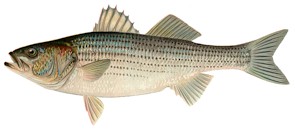Not too long ago, I provided an update on the fastest fish in the sea, the Indo-Pacific sailfish (Istiophorus platypterus). I thought it would be interesting to do some research on how fast this fish is in comparison to other animals on land and in the sea and create a graphic to illustrate it. First, some notes, there are some outliers I left off the chart. For instance, the Peregrine falcon (Falco peregrinus) at 325 miles per hour (mph), as well as pretty much the entire family of swifts (Apodidae) averaging a 106 mph flying speed. Also, I am certain there are many other species of terrestrial and flying animals that can be included in this list, I only added a few to compare. Please feel free to comment below or send me an email at info@beachchairscientist.com if you have something to add to the list!
THE LIST
| Peregrine Falcon (Falco peregrinus) | 200 mph |
| Swift (Apodidae) | 106 mph |
| Sailfish (Istiophorus platypterus) | 70 mph |
| Cheetah (Acinonyx jubatus) | 70mph |
| Pronghorn antelope (Antilocapra americana) | 61 mph |
| Striped marlin (Tetrapturus audax) | 50 mph |
| Wahoo (Acanthocybium solandri) | 48 mph |
| Southern blue fin tuna (Thunnus maccoyii) | 47 mph |
| Yellow fin tuna (Thunnus albacares) | 46 mph |
| Blue shark (Prionace glauca) | 43 mph |
| Ostrich (Struthio camelus) | 43 mph |
| Bonefish (Albula vulpes) | 40 mph |
| Swordfish (Xiphias gladius) | 40 mph |
| Tarpon (Megalops cyprinoides) | 35 mph |
| Tiger shark (Galeocerdo cuvier) | 33 mph |
| Hawk moth (Sphingidae) | 33 mph |
| Human (Homo sapiens) | 27 mph |
For more information I recommend The Travel Almanac and The Top 10 List.


















What people are saying …